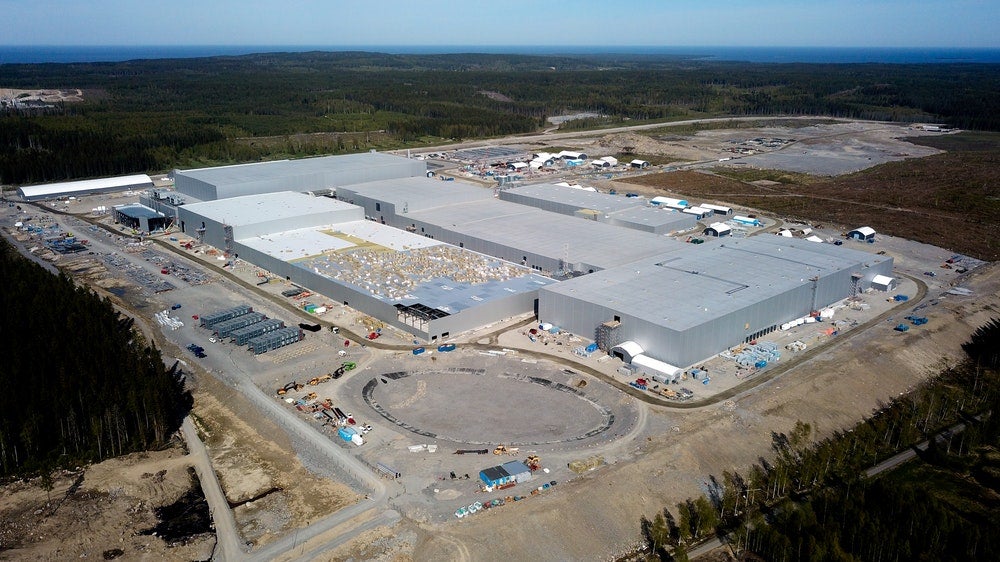
Okay, we may have underestimated this one. Back in early May Verdict reported on rumours that Swedish battery maker Northvolt was planning a mega-investment round to surpass its $600m September 2020 raise. Well, it was planning on making a humongous raise. That’s true. However, it was a lot bigger than expected.
Northvolt has just announced that it has raised an eye-watering $2.75bn equity round to expand its gigafactory, Northvolt Ett, from 40 to 60 GWh of annual capacity as it gears up to meet the car industry’s surging demand for clean energy.
The Scandi lithium-ion battery maker didn’t disclose what valuation the round was raised at, but a person familiar with the company told CNBC that the latest investment saw Northvolt’s valuation jump from $3.9bn to $11.75bn, placing it firmly in decacorn territory.
For comparison, the Swedish buy-now-pay-later company Klarna raised a $1bn funding round in March at a $31bn valuation and has just achieved a $45.6bn valuation on the back of a new investment $639m round led by SoftBank.
Swedish pension funds AP1, AP2, AP3, AP4 and OMERS Capital Markets co-led the new Northvolt investment round alongside existing investors Goldman Sachs Asset Management and Volkswagen Group.
The new round means Northvolt has raised $6.5bn in total in equity and debt since former Tesla executive and now-CEO Peter Carlsson co-founded the clean energy startup in 2016.
How well do you really know your competitors?
Access the most comprehensive Company Profiles on the market, powered by GlobalData. Save hours of research. Gain competitive edge.

Thank you!
Your download email will arrive shortly
Not ready to buy yet? Download a free sample
We are confident about the unique quality of our Company Profiles. However, we want you to make the most beneficial decision for your business, so we offer a free sample that you can download by submitting the below form
By GlobalDataNorthvolt has to date also secured $27bn worth of contracts from key customers, including BMW, Fluence, Scania and Volkswagen.
The battery maker’s goal is to successfully deploy 150 GWh of annual production by 2030, something the CEO is confident Northvolt can achieve, especially since it is planning on building two more European gigafactories in the next decade.
“We have a solid base of world-class investors and customers on-board who share Northvolt’s mission of building the world’s greenest battery to enable the European transition to renewable energy,” Carlsson said.
He added that its cell industrialisation facility, Northvolt Labs, has been producing cells for more than a year.
Northvolt is also anticipating that different parts of the European value chain for battery manufacturing will grow tremendously over the next decade. That includes processing of raw materials, component and equipment manufacturing, production of battery cells and systems and the build-up of recycling infrastructure.
“This is a new European industry in the making and it will require significant investments over the coming decade,” said Alexander Hartman, CFO of Northvolt. “It is encouraging to see that the investor community has identified the opportunity early, and we hope to see more investments throughout the value chain over the coming years.”
The news about the Northvolt investment comes as the car industry is transitioning from combustion engines to electronic vehicles. Shoring up a steady supply of next-gen batteries is crucial for automakers to win the race for the biggest market share.
A recent GlobalData thematic research report estimated that worldwide fitment of advanced batteries would jump from 9.7 million units in 2020 to nearly 68 million by 2035.




